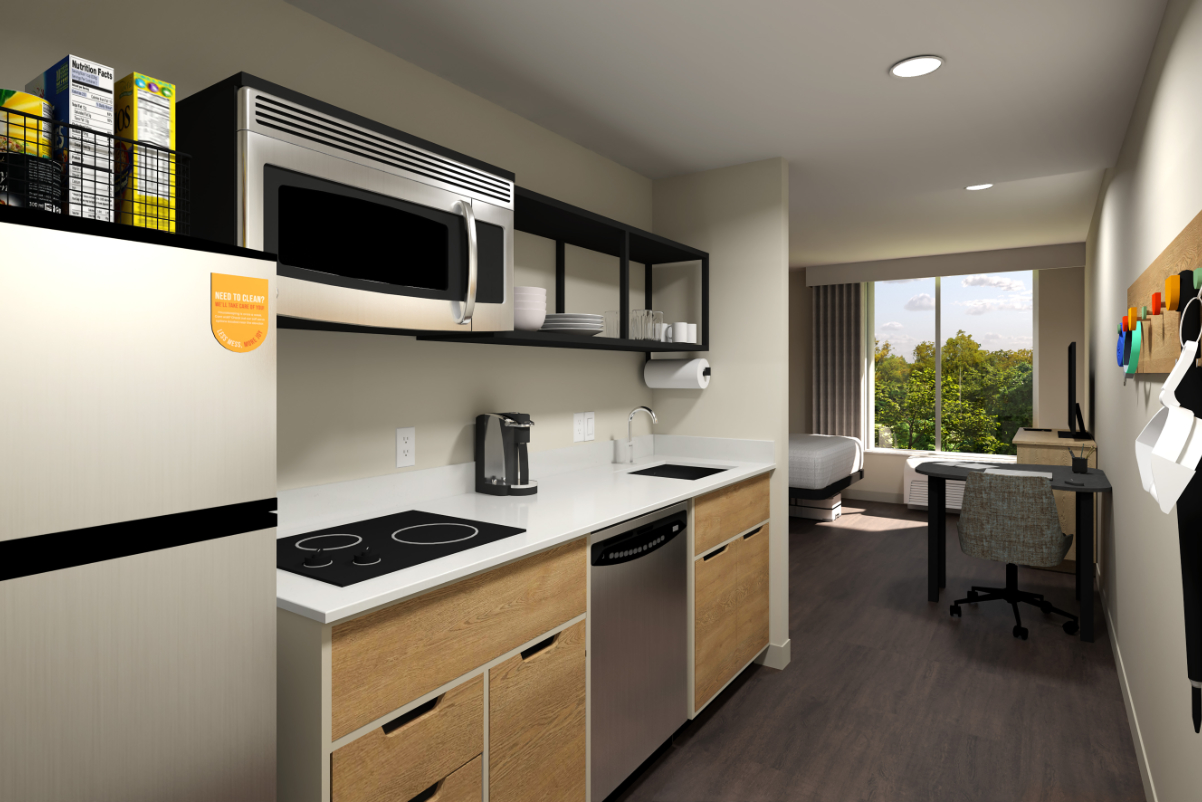Airbnb and Hotels: Growth Ambitions Could Threaten Peaceful Coexistence

Skift Take

Many people assume that hotel operators and short-term rental managers are fighting for the same customers. But they're not, said executives at last week's Skift Global Forum 2023. Hotels tend to attract guests with different needs than short-term rentals do, the industry leaders argued.
Yet what's true today may not be true tomorrow, based on growth ambitions from hotels and Airbnb — which point to increased competition for the same customers.
For now, it's a peaceful coexistence, said both Hilton's CEO, Christopher Nassetta, and Brian Chesky from Airbnb.
"I never felt that for Airbnb to win, hotels had to lose," Chesky said. "The evidence of that is that Airbnb had approximately 400 million guest arrivals last year. Last year, hotels had revenue and profits significantly higher than before we started... There is overlap [between hotels and Airbnb]. But there is less overlap than anyone realizes."
Attempts to professionalize the management of short-term rentals to make them more hotel-like have had mixed results, too.
"On balance, the companies with lots and lots of properties — I'm not going to name any names — they generally have lower five-star reviews," Chesky said. "As companies get really big, they have trouble maintaining the quality control. How do you industrialize hospitality without feeling commoditized and while still feeling personal.... You may not have the efficiencies of a hotel."
Hotels have long argued they provide a more reliable and consistent service. "In the end, what they do and what we do are different," Nassetta said.
Hilton's focus groups found that many customers turn to short-term rentals if they're traveling in "larger groups or for more extended stays where people need a facility like a kitchen or where they're looking for a real value proposition because a group has different people of different means."
Hotels Go After Long-Stay Guests
But the future of lodging will more likely involve rising fights as hotels and short-term rental providers go after the same travelers.
For example, one group that currently prefers short-term rentals is people seeking extended stays.
"Roughly half of our nights booked are for stays longer than a week," Chesky said. "Hotels don't really serve that need that well."
Yet hotels have been eagerly expanding into extended-stay and serviced- or micro-apartments. Hilton, for example, is touting an as-yet-unnamed brand it's about to launch in the extended-stay space.
Hyatt last week revamped its vacation rental business with a plan to grow its hosting of travelers in homes for lengthy stays. Since October, several hotel groups, including Marriott, Wyndham, and BWH (Best Western), have also launched extended-stay brands, while Extended Stay America has been growing rapidly. Roughly a third of the construction pipeline for hotels in the U.S. is extended-stay projects, according to Lodging Econometrics.
Another coming change: They'll start to invade each other's turf. Up until now, the geographic footprints haven't overlapped much. Extended-stay hotels tend to be built closer to businesses, while alternative accommodations tend to pop up in beach and mountain destinations or the residential neighborhoods of cities. The more hotels spread out, the more they'll compete.
The typical retort is that business travelers gravitate to extended-stay hotels, while vacationers lean into alternative accommodations.
"[Hilton's upcoming extended-stay brand] is for a more mobile workforce," Nassetta said. "I'd argue it's more of a micro-apartment efficiency than a hotel. Nobody [in the hotel sector] has done this at scale."
Hilton has also introduced "confirmed connected rooms," a feature that enables families traveling together to get separate rooms that are adjacent when staying at its properties. This feature could appeal to long-stay vacationing families who currently favor alternative accommodations.
Airbnb Needs Growth
For its part, Airbnb is promising investors continued growth in revenue. (See "Airbnb Needs Strong Listings Growth To Hit Forecasts – A Heavy Lift.") Achieving growth means tapping ever greater numbers of travelers.
At some point, short-term rental and vacation rental operators will be increasingly competing for hotel guests.
One way to increase competitiveness with hotels, Chesky said, was to teach hosts of short-term rentals how to be better at revenue management.
"A lot of Airbnb's are running at very low occupancy, maybe 20% or 30%," Chesky said. "For many hosts, they can make more money, within reason, if they charge a little less [per night] and then increase occupancy."
So the more Airbnb can guide hosts on setting optimal rates, the more they'll be competing to appeal with guests who might otherwise go to hotels.
Airbnb is arguably the company with the most to win by stealing market share from hotels, even though its rivals, such as Vrbo and Booking.com, could also benefit. An analysis from data provider Transparent by Bernstein Research in August found that 57% of all vacation rental listings globally are only available on Airbnb as exclusive listings. Airbnb is similarly a leader in urban short-term rentals.
At Skift Global Forum, attendees saw a couple of ads Airbnb recently ran that explicitly appealed to travelers to choose alternative accommodations over hotels. (See "‘Get an Airbnb’ Campaign Challenges Hotels") Those ads probably won't be the last.





